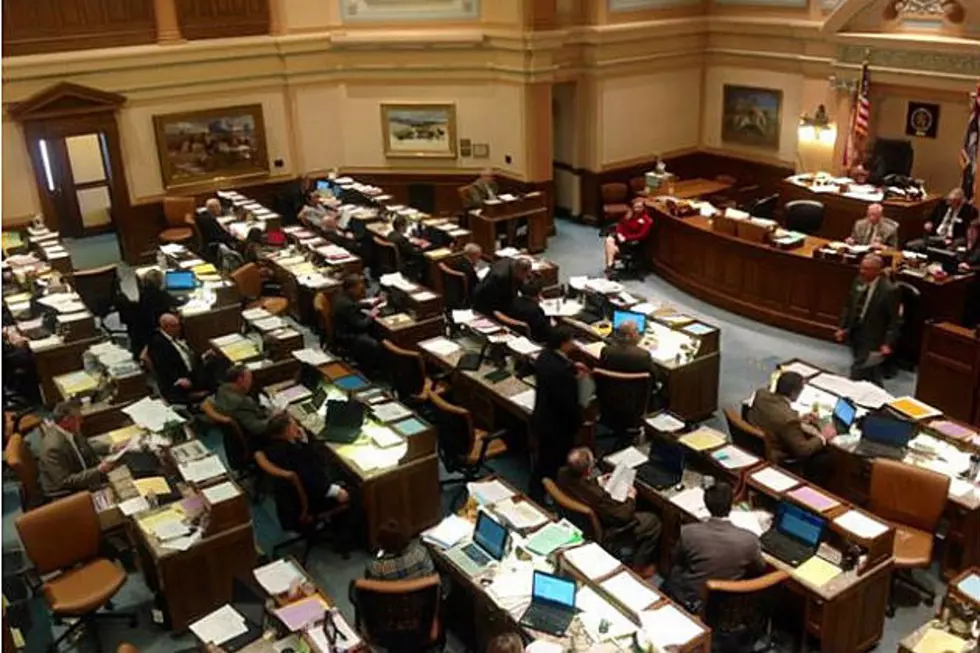
Gas Tax Among High Profile Bills Dying In Wyoming Legislature
A phased in gasoline tax, Medicaid expansion and the latest in a series of efforts to prevent crossover voting in Wyoming primary elections were among the high-profile bills to die during the recently concluded 2022 Wyoming legislative session.
The gasoline tax proposal would have increased the state's fuel tax by five cents per gallon over three years. It would have raised the tax from the current 24 cents per gallon to 39 cents once it was fully implemented, with the proceeds going to maintain and improves Wyoming roads and highways. But even though the legislatures Joint Transportation, Highways and Military Affairs Committee signed off on House Bill 14, it died without the House ever considering it for introduction.
Fuel tax increases are traditionally unpopular in a state where people commonly travel long distances for work, healthcare and recreation and the measure never seemed to get much traction.
It's probably safe to say that it would have been even more unpopular than usual during a time of skyrocketing gas prices had it made headway among lawmakers. In fairness, the tax was proposed before the recent explosion in gas prices, although those prices had been on an upward trajectory for quite some time.
It seems like a proposal to expand the Medicaid program in Wyoming is more or less an annual topic of discussion in the Wyoming Legislature, and 2022 was no exception. Once again, however, it failed to win approval. House Bill 20 was not considered for introduction in the Wyoming House, despite the backing of the legislature's powerful Joint Revenue Committee. A followup attempt by Sen. Cale Case [R-Fremont County] to get Medicaid expansion added to the budget bill likewise went nowhere.
Another high-profile bill that drew a fair amount of public comment during the recent session was Senate File 51, the Fairness in Women's Sports Act.The legislation, sponored by Sen. Wendy Shuler [R-Uinta County], would have banned anyone born as a male from competing in women's sports. Shuler argued the legislation was a matter of fairness to athletes born as females, arguing that trans athletes maintain significant size and strength advantages even after undergoing testosterone suppression therapy. Opponents of the bill, including the ACLU and Wyoming Equality, argued that the bill was disciminatory and violated federal law. After easily clearing the Wyoming Senate on a 24-5 vote, the bill died when it failed to meet a committee deadline in the Wyoming House.
Some gun rights advocates were dissapointed when the Second Amendment Preservation Act failed introductory votes in both the Wyoming House and Senate. The Senate version of the bill fell far short of the 2/3 majority vote needed for introduction, with 20 Senators voting no as opposed to only nine voting yes. It came much closer in the Wyoming House, where 37 members voted in favor of introduction.
But that was still a few votes shy of the 2/3 majority vote needed to consider a non-budget bill during a budget session [40 votes in the House]. Lawmakers did, however, sign off on another piece of anti-gun control legislation, the Second Amendment Protection Act.
And the latest attempt at stopping people from registering to vote in a different political party prior to election day also failed to make it. Former President Donald Trump had urged Wyoming lawmakers to approve such a measure in hopes of preventing arch-rival Rep. Liz Cheney from possibly benefitting from an influx of people previously registered as Democrats in the August GOP congressional primary election. Senate File 97 passed the Senate on an 18-12 vote, but died in the House when it failed to be considered for introduction.
Other notable bills that died at some point in the legislative process in 2022 included measures to decrimiinalize marijuana, name a highway in the Casper area for former President Donald Trump, and a resolution calling for a national Convention of the States. But supporters of those measures and many others can try again next year, when Wyoming lawmakers meet for a 40 day general session. Not only will that be twice as long as this year's budget session, but bills need only a majority vote for introduction. That's a much lower threshold than the 2/3 majority vote needed for non-budget items this session.
PhotoFest: 4A Boys Basketball Final-Thunder Basin Vs. Cheyenne East
More From Wake Up Wyoming









